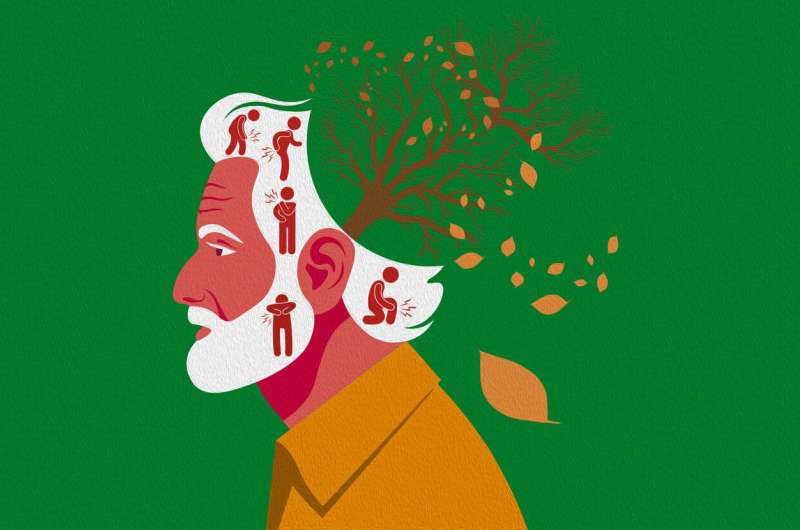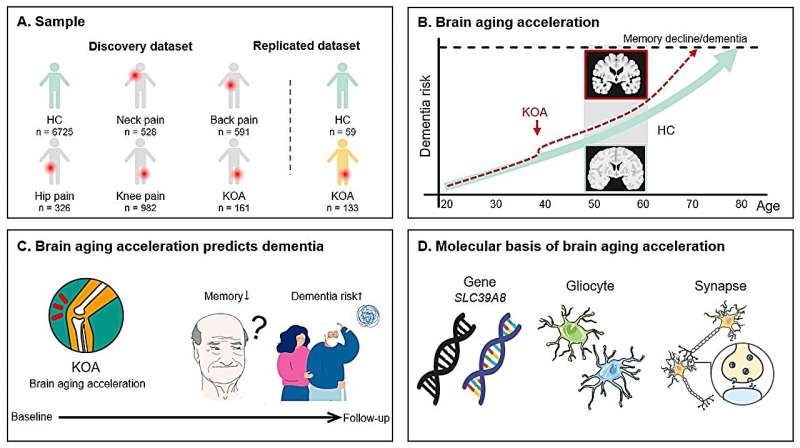This article has been reviewed according to Science X's editorial process and policies. Editors have highlighted the following attributes while ensuring the content's credibility:
fact-checked
peer-reviewed publication
trusted source
proofread
Chronic musculoskeletal pain may accelerate brain aging

In a study published in Nature Mental Health, scientists from China and the United States have found that individuals suffering from chronic musculoskeletal pain (CMP) may face a higher high risk of brain aging.
CMP is a leading cause of disability, affecting more than 40% of the world's population and impacting patients' cognitive function. Although the exact mechanism is not fully understood, thus hampering prevention and treatment efforts, research indicates that inflammatory markers associated with brain aging are higher in CMP patients, suggesting a link between brain aging and CMP.
In light of this finding, researchers led by Prof. Tu Yiheng from the Institute of Psychology of the Chinese Academy of Sciences, in collaboration with international experts, explored the profiles of brain aging patterns and underlying mechanisms in different types of CMP. Their study highlights the association between chronic knee pain, particularly from knee osteoarthritis (KOA), and accelerated brain aging.
Using structural MRI data from over 9,000 individuals, the researchers developed a brain age model to compare brain age to chronological age.
They found that individuals with KOA, who were identified from both the UK Biobank and additional replication datasets from the local community, experienced more rapid brain aging than healthy individuals. In addition, brain regions responsible for human cognitive function, such as the hippocampus, were found to be associated with accelerated brain aging.

"We not only revealed the specificity of accelerated brain aging in KOA patients, but importantly, we also provided longitudinal evidence suggesting the ability of our brain aging marker to predict future memory decline and increased dementia risk," said Prof. Tu.
Moreover, the researchers delved into the genetic landscape and identified the gene SLC39A8 as a shared link between KOA and accelerated brain aging. This gene, which is particularly expressed in microglial cells and astrocytes, underscores the potential role of inflammation and neurodevelopment in the observed phenomena.
This study not only provides compelling evidence for the neurocognitive impacts of KOA but also opens new avenues for early detection and intervention strategies targeting dementia risk factors.
The collaboration between multidisciplinary teams across China and the United States underscores the global effort to understand and address the intertwined challenges of aging, chronic pain, and cognitive decline.
More information: Lei Zhao et al, Morphological and genetic decoding shows heterogeneous patterns of brain aging in chronic musculoskeletal pain, Nature Mental Health (2024). DOI: 10.1038/s44220-024-00223-3



















